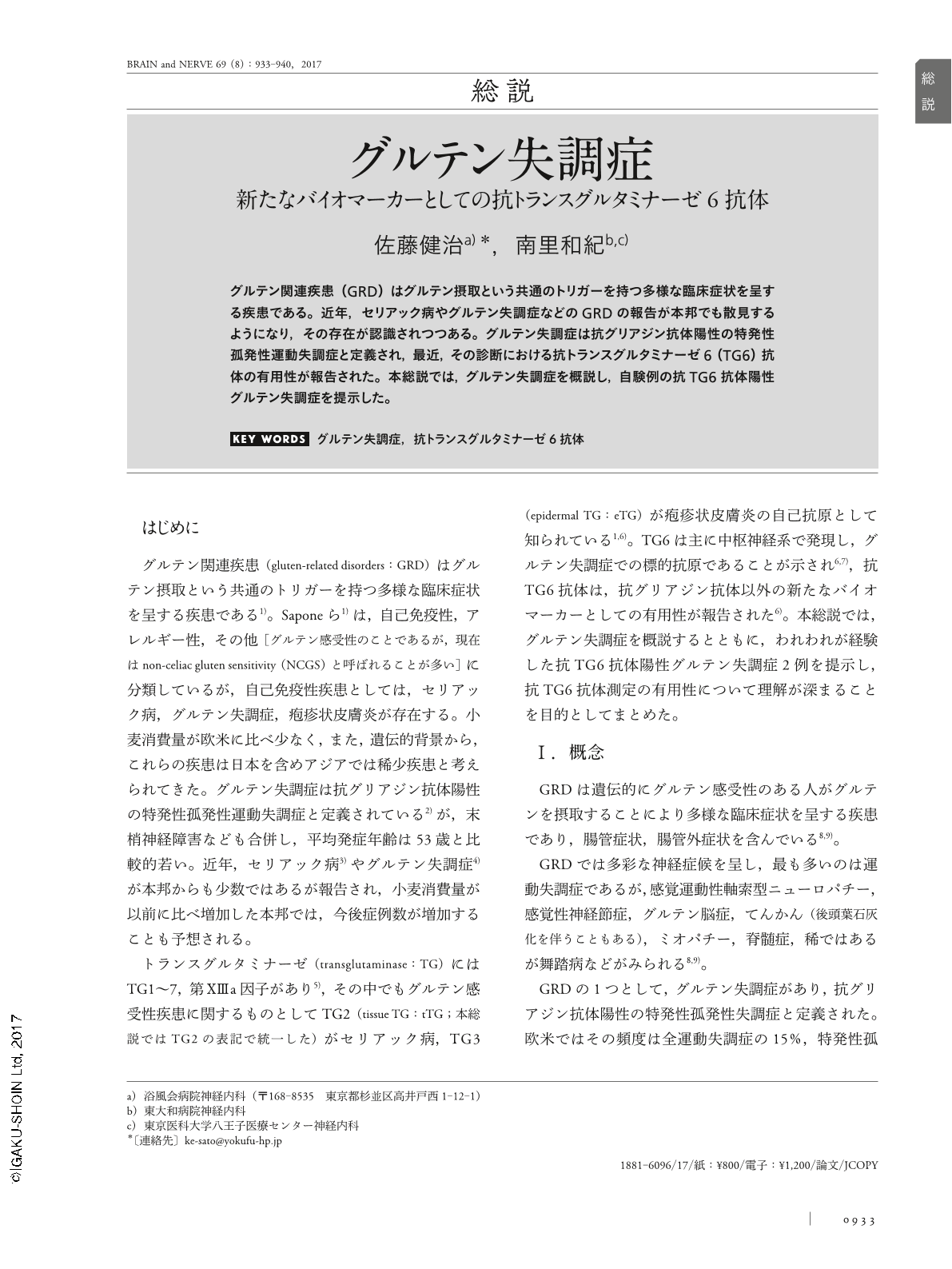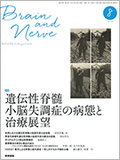Japanese
English
- 有料閲覧
- Abstract 文献概要
- 1ページ目 Look Inside
- 参考文献 Reference
グルテン関連疾患(GRD)はグルテン摂取という共通のトリガーを持つ多様な臨床症状を呈する疾患である。近年,セリアック病やグルテン失調症などのGRDの報告が本邦でも散見するようになり,その存在が認識されつつある。グルテン失調症は抗グリアジン抗体陽性の特発性孤発性運動失調症と定義され,最近,その診断における抗トランスグルタミナーゼ6(TG6)抗体の有用性が報告された。本総説では,グルテン失調症を概説し,自験例の抗TG6抗体陽性グルテン失調症を提示した。
Abstract
Gluten-related disorders (GRDs) are conditions that develop in response to the common trigger of gluten ingestion and manifest as a variety of clinical symptoms. GRDs have been considered rare in Asian countries, including Japan, because of lower consumption of wheat products than in Europe and the U.S.A. and differences in genetic background. Recently, however, GRDs, such as celiac disease and gluten ataxia, have been reported in Japan, albeit sporadically and their presence is now recognized in this country. Gluten ataxia is defined as an anti-gliadin antibody positive sporadic ataxia. Recently, it was reported that the presence of anti-transglutaminase-6 (TG6) antibody can be used to diagnose gluten ataxia. Herein, we will review evidence relating to gluten ataxia and report two cases of anti-TG6 antibody positive gluten ataxia. In patients with gluten ataxia, sensory disturbance is generally considered to be so mild that it contributes minimally to ataxia. However, our patients showed a positive Romberg sign. Deep sensory disturbance, in addition to cerebellar disturbance, may have been involved in the clinical symptoms of our cases.

Copyright © 2017, Igaku-Shoin Ltd. All rights reserved.


